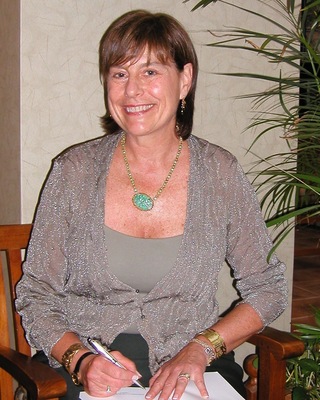Therese Ragen, PhD
Clinical Psychologist

New York, NY 10016
Phone: (212) 529-9442
Email: thereseragen@gmail.com
Therese Ragen, PhD
Clinical Psychologist and Psychoanalyst
I am a clinical psychologist and psychoanalyst. I believe that most psychological symptoms you might be suffering from, such as anxiety, depression, relational difficulties, poor self-esteem are caused by deeper emotional conflict and pain. Once identified and worked with in psychotherapy this pain and conflict,along with the symptoms it creates in you, can be greatly relieved. In addition, in working on these deeper issues you often find strengths and gifts within yourself you may never have been aware of. I have been working in this way for the past thirty years with adult patients, individually and with couples, with much success.
You will find that my style is very empathic as well as direct and interactive. Also, I have published a book titled “The Consulting Room and Beyond “(Routledge, 2009), along with several articles on psychotherapy and psychoanalysis. I am a clinical associate professor at New York University Postdoctoral Program in Psychotherapy and Psychoanalysis.
Specialties
Faculty Positions
New York University Postdoctoral Program in Psychotherapy and Psychoanalysis—clinical associate professor
Contemplative Studies Project of New York City—faculty member
Education
Loyola University Chicago – Masters Degree Program in Counseling Psychology for Professionals in Religion
Adelphi University – Doctoral Program in Clinical Psychology
New York University – Postdoctoral Program in Psychotherapy and Psychoanalysis
Publications
(2009). The Consulting Room and Beyond: Psychoanalytic Work and Its Reverberations in the Analyst’s Life. New York & London: Routledge.
(2006). Longing. Contemporary Psychoanalysis, 43, 4, pp. 554-583.
(2006). Sandor Ferenczi and the Case of Matt. Contemporary Psychoanalysis, 44, 4, pp. 604-621.
(2004). How far to the moon? Contemporary Psychoanalysis,40 ,3, pp. 373-385.
(2003). A Psychoanalyst’s Journal: September 11. In: Northwest Review, winter, pp.114-131.
(2002). Legacy. In: The Texas Review, winter, pp. 44-57.
(2001). The patient’s need to love. In: Dimensions of Empathic Therapy, ed. P. Breggin, G. Breggin, & F. Bemak. New York: Springer Publishing Company, pp. 56-64.
(2001). The Mass. In: Palo Alto Review, fall, pp. 55-58.
(1993). Mutual supervision, countertransference, and self analysis (with A. Harris). In J. W. Barron (Ed.), Self-analysis: critical inquiries, personal visions (pp. l95-2l8). Hillsdale, New Jersey: The Analytic Press.
(1993). Abandoned workings: Ferenczi’s mutual analysis (with L. Aron). In L. Aron & A. Harris (Eds.), The legacy of Sandor Ferenczi (pp.217-226). Hillsdale, New Jersey: The Analytic Press.
Papers Delivered
(2006). Exploring Psychoanalytic Writing. Paper accepted for presentation. Annual Meeting of the Division of Psychoanalysis, Toronto, CA, April, 19, 2007.
(2006). The Use of the Genre of Creative Non-fiction in Clinical Writing. Paper presented at the Northwest Center for Psychoanalysis, Seattle, Washington.
(1998). Body, energy, and the dialectic of body/mind subjectivities. Wilhem Reich and relational psychoanalysis. Paper presented at the annual meeting of the Division of Psychoanalysis, American Psychological Association, Boston, Massachusetts.
(1997). Patients: Artists in living. Otto Rank and relational psychoanalysis. Paper presented at the annual meeting of the American Psychological Association, Chicago, Illinois.
(1994). Subjectivities in psychoanalytic and supervisory dialogues (with A. Harris). A conference presented by Section V, Division of Psychoanalysis, American Psychological Association, Chicago, Illinois.
(1993). Discussion of Blechner, M. Character, technique, enactment, and understanding: Further thoughts on working in the countertransference (with A. Harris). Symposium conducted at the annual meeting of the Division of Psychoanalysis, American Psychological Association, New York, New York.
(1992). The shock of the real (with A. Harris). Paper presented at the 6th biennial conference of the New York University Psychoanalytic Society, The meeting of the minds: on the nature of contact in psychoanalysis, New York, New York.

